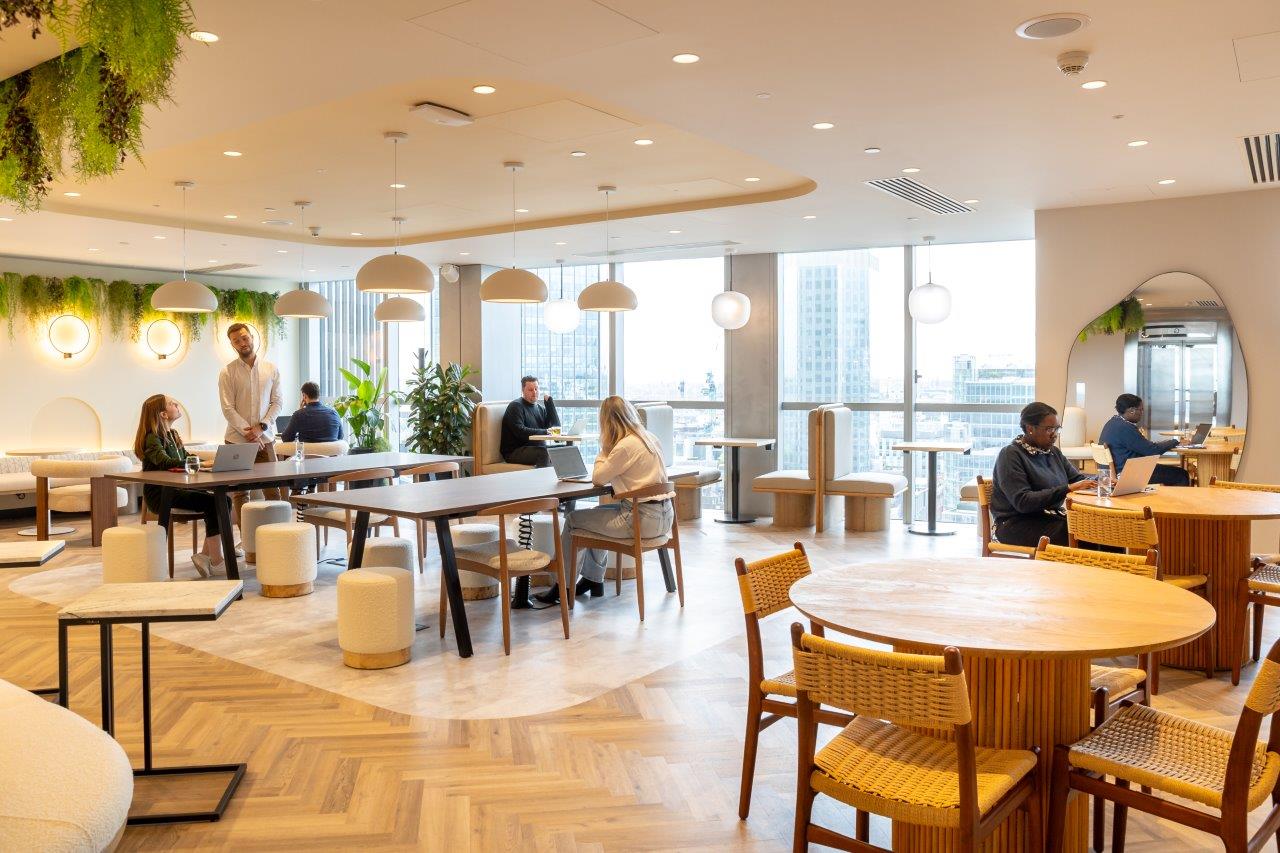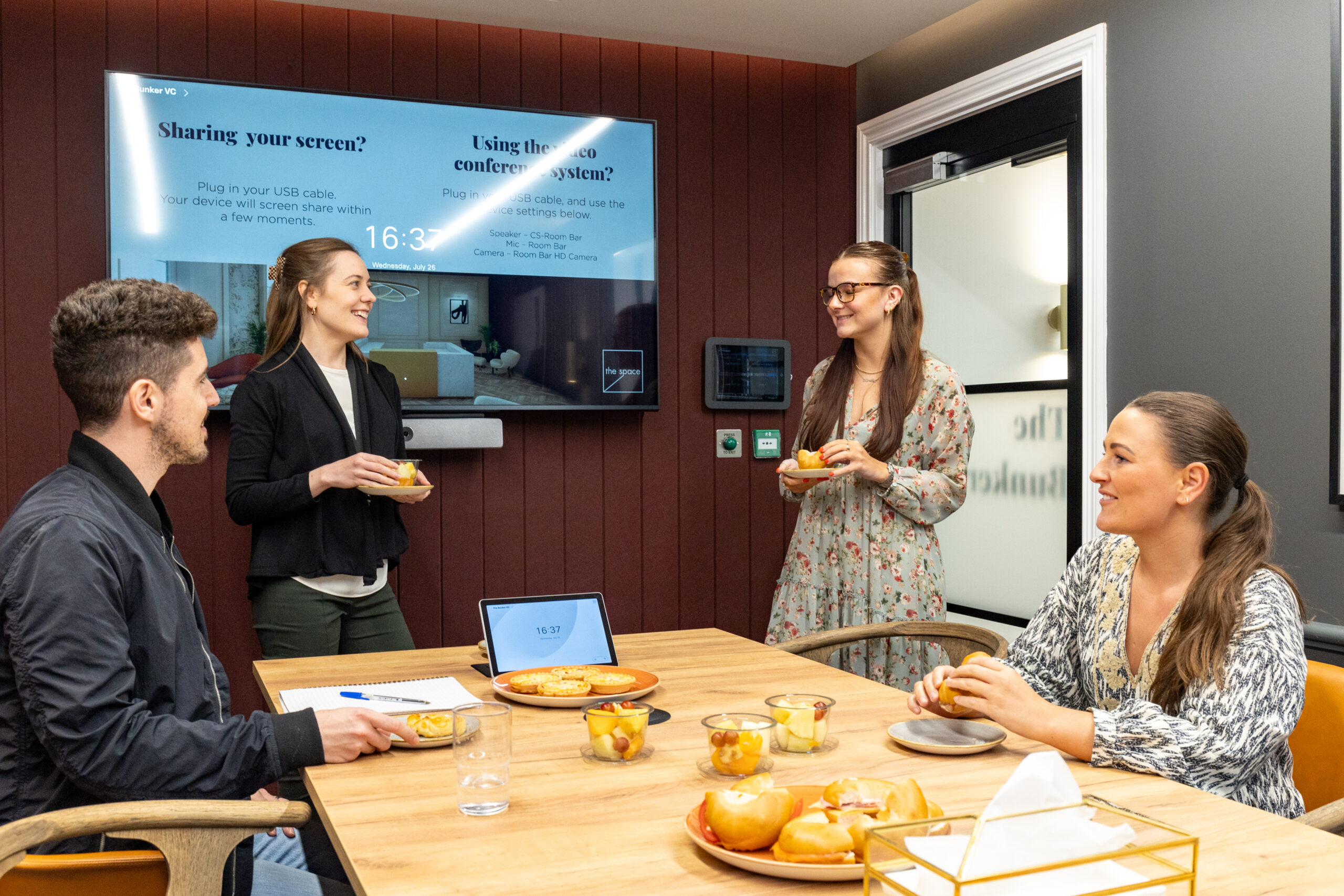How to create a millennial-friendly office environment and workplace culture
24th January 2019

Workplace trends are constantly evolving, with phrases like flexitime, hot desking, and work-life balance hot on the lips of modern-day job-seekers. Now, we conduct ourselves and interact with others in ever-changing ways, and we owe many of these changes to millennial workers. To align with their attitudes to work and the office lifestyle, many employers have paused for thought and made adjustments to their business practices accordingly. But why should businesses be so concerned about keeping the millennial generation happy?
Why are millennials so important to businesses?
Millennials have been loosely categorised as the group of people born between the early 1980s and the mid-1990s. The demographic is also known as Generation Y, and though there are no precise dates defining where the generation begins and ends, Pew Research Centre suggests that millennials will be between the ages of 23 to 38 in 2019.
A typical characteristic associated with millennials is an aptitude for technology, particularly in the younger millennials who represent the first generation to grow up alongside smartphones and social media. Another trait is ambition, stemming from the fact that more millennials are formally educated compared to previous generations. Years of schooling and career preparation means that they also have a greater degree of self-confidence, as well as a desire to learn and improve themselves. Finally, millennials tend to prioritise a distinct work-life balance, craving fulfilment in whatever it is they are doing.
Unfortunately, many employers don’t provide a work environment to complement these characteristics and often find themselves losing talented employees as a result. A 2018 study by Deloitte found that 43% of millennials intend to leave their current jobs within two years, which has left them dubbed as the job-hopping generation.
However, plenty of businesses are trying to buck the trend in order to retain their millennial workforce, and for good reason. A paper compiled by ManpowerGroup estimated that millennials will make up over a third of the global workforce in 2020, so it’s no wonder that bosses are keen to keep them sweet. By making some simple changes to their office environment, companies are far more likely to appeal to the millennial mindset, leaving them happier and far more likely to stick around for years to come.
What do millennials want in a workspace?
Flexibility
A work-life balance is of the greatest importance to a millennial employee. Though their job is a core part of their life, it’s vital they have significant free time to focus on outside interests, spending time with family, or engaging in social/leisure activities. These will all go towards improving their individual wellbeing, leading to greater job satisfaction—in order to achieve this balance, flexibility is a must.
For example, some millennials may feel less productive following the standard 9 to 5 working day, particularly if they have to factor in other responsibilities like childcare, which could make these set hours stressful or inconvenient. Bosses could help by allowing employees to choose their own hours, reaching a compromise that benefits both parties.
If possible, businesses could also give their staff the opportunity to work from home. Not only will this be potentially beneficial for employees, but it could also help to reduce overall office costs. With fewer employees based in the office at all times, hot desking arrangements could be introduced which allow employers to use the area available more efficiently. The practice was conceived based on data suggesting as much as 40% of an office’s desk space goes unused.
Landmark’s private offices are bespoke to businesses and come with no hidden charges, ensuring clients only pay for the space they need. This service also gives companies the freedom to upscale or cut back depending on the needs of the business, such as downsizing on space if hot desking policies are introduced. With no long-term commitment to space, there’s no fear of being tied to an inflexible lease.
Choice
As well as flexibility in terms of their working hours, millennials also want variable spaces within their office environment.
Firstly, a traditional open-plan office may not provide optimum working conditions for certain members of staff. A busy and often noisy environment can be distracting, which is a problem when 29% of millennials claim that working without interruptions is the most important factor of a healthy work environment. Businesses can accommodate these employees by introducing dedicated quiet zones within the office, so staff have the option to work in peace if they believe it will boost their efficiency.
Even those happy with the general environment may need their own space at times. According to a study conducted by the Mental Health Foundation (MHF), 34% of millennials felt stress made them less productive at work but 28% believed working through stress was expected in their job. To prevent staff from burning out, they should be able to take breaks away from their desk in a space where they can relax, such as a dining or lounge area. This also encourages millennial workers not to eat lunch at their desks, which can be unhygienic, deprives employees of social interaction, and doesn’t allow them to truly switch off from their screens or their work.
Our Club Space business lounge membership offers unlimited access to a range of professional spaces, including quiet zones, private phone booths, meeting rooms and social lounges where you can enjoy free Nespresso-style coffee.
Growth
Unlike previous generations, millennials have no intention of sticking to the same role with the same responsibilities. This is a group driven by progress, and nearly 90% of millennials are looking to grow their careers within their current companies. If businesses want them to commit, they must provide progression opportunities for their employees to grow.
Training programmes allow ambitious millennials to pick up new and valuable skills which aid their current performance or even prepare them for the next step on the career ladder. Continuing Professional Development (CPD) could also combine methodologies such as workshops, conferences and events, mentoring schemes, and e-learning programmes, which engages millennial staff by keeping them up-to-date with the latest practices.
It’s just as essential for millennials to feel as though they are part of the workplace, and know exactly where they fit in and how they can contribute to its overall success. By providing a sense of belonging and connectivity, the job will gain more meaning and purpose, leaving millennial employees feeling fulfilled and with a greater reason to stay put. This can be done by leading regular company get-togethers to inform the workforce of any updates, plans for the future, and new opportunities. Maintaining open and professional communication will make employees feel valued, creating trust and loyalty towards the organisation.
In terms of job progression, bosses should set up a clear plan of action detailing exactly what the millennial worker needs to do to succeed. Promotion is the clearest evidence of growth but if that isn’t an option, offer a different incentive, such as a pay rise or the opportunity to take on more responsibility elsewhere within the team.
Feedback
Millennials hoping to progress will expect constructive feedback from their employers. Examining their current performance is the most effective means of setting new goals to work towards, and therefore keeping them engaged. On average, just 29% of millennials are engaged at work, while 16% describe themselves as ‘actively disengaged’.
Many companies will give feedback during an end-of-year review programme, but millennials will respond far more favourably to ongoing communication—44% believe they are more likely to engage if their manager holds regular meetings. Consistent conversations with employees boost motivation by providing them with regular short and long-term goals to work towards. As well as highlighting areas for improvement, feedback is an opportunity to praise workers for their achievements, leading to positive reinforcement and a boost in morale.
When giving feedback, employers should be as honest, meaningful, and specific as possible, and while millennials want to know how to better their mistakes, they should not overbear them with excessive criticism. It’s also sensible to have these conversations away from the rest of the employees, so if the company has an open-plan office, it is perhaps worth investing in one of our meeting rooms, which are perfect for all private one-on-one chats of this nature.
Incentives
The right perks are more important to a workforce than employers may think. A study by HR Dive revealed that 68% of employees consider ‘work perks’ as important as health coverage, life insurance, and other traditional health benefits. However, to impress millennial staff, it’s vital that such perks are tailored to their priorities and values.
Millennials are a generation that value experience over material gain, and far more likely to spend their money on travel or activities than designer clothing or pricy flat-screen televisions. The desire to live a meaningful life full of happy memories means that 78% of millennials would rather fork out for an experience than a product, while 55% say they’re spending more on such events than ever before.
This group is also responsible for the recent surge in the wellness industry, with millennials generally taking a greater interest in their health than previous generations. They are more likely to eat nutritious food, exercise regularly, and prioritise their mental health. Characteristically, they tend to use technology to do this, gaining information through social media and apps, and subsiding their lifestyle with gadgets like the Fitbit or apps like Headspace.
Millennials have also helped drive the boom in the coffee sector. However, they are unlikely to be moved by instant coffee—a 2017 study by the National Coffee Association found that 70% of past-day coffee consumed is a gourmet beverage.
By taking these factors into consideration, businesses can appeal to millennials by offering perks such as:
- Flexible working hours and the option to work from home
- Bonus holiday allowance and opportunities to work in a different country
- Discounted gym memberships or regular fitness classes in the office
- Yoga and meditation workshops
- Free healthy meals and snacks
- Free gourmet coffee
- Discounts on experiences like cinema trips, sports events and concerts

